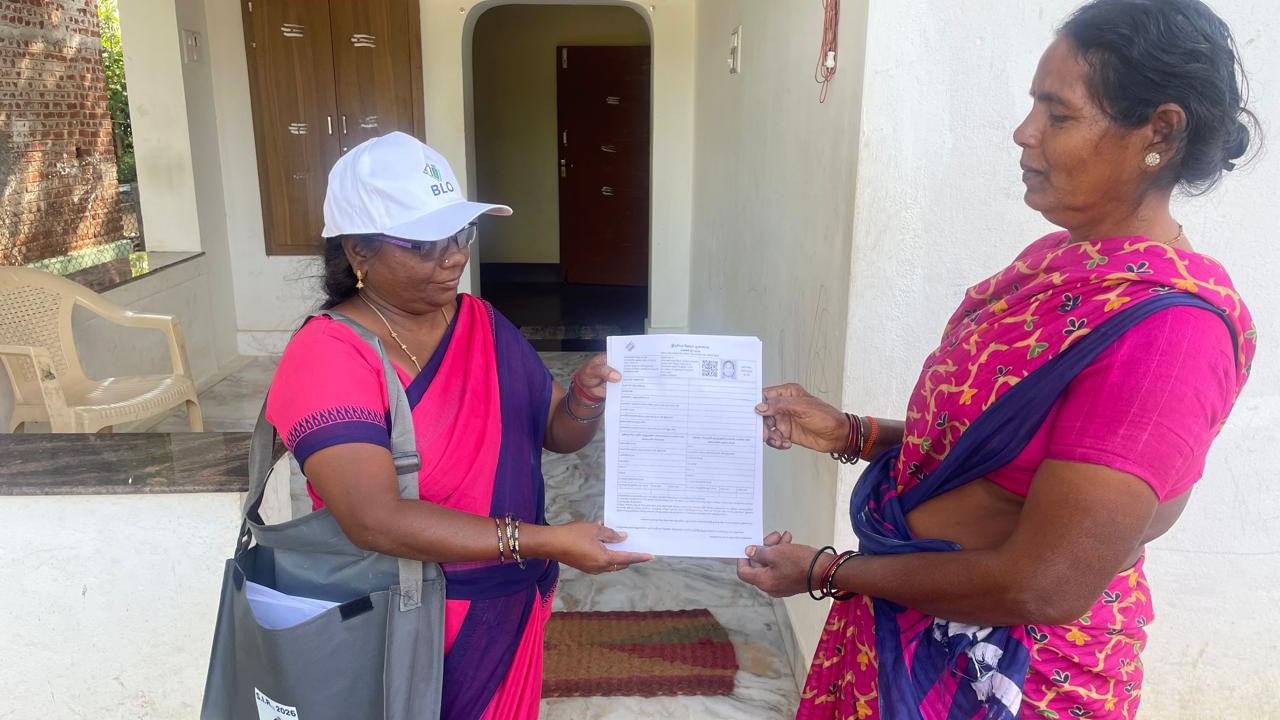Chennai: The Election Commission of India (ECI) has commenced the second phase of its Special Intensive Revision (SIR), a massive door-to-door exercise to clean up the electoral rolls in 12 states and union territories. The verification drive, which begins today, will continue until December 4, culminating in the publication of the final electoral roll on February 7, 2026.
Dubbed ‘SIR 2.0’, this initiative is a comprehensive, field-level verification designed to eliminate errors, remove duplicates, and ensure only eligible citizens are on the list. The entire electoral roll in the participating regions is now frozen until the process is complete.
Which States Are Included in SIR 2.0?
The exercise covers a significant part of the country, including:
-
States: Chhattisgarh, Goa, Gujarat, Kerala, Madhya Pradesh, Rajasthan, Tamil Nadu, Uttar Pradesh, West Bengal
-
Union Territories: Andaman & Nicobar Islands, Lakshadweep, Puducherry
Notably, Assam has been excluded from this phase due to its unique citizenship document rules, as the state is preparing for elections next year.
Why is This Revision Being Conducted?
The ECI considers this a constitutional necessity. The last such nationwide revision was conducted between 2002 and 2004. Since then, rapid urbanization, large-scale internal migration, and demographic shifts have significantly altered the electoral landscape. The Commission aims to address issues of “duplicate voters, deaths of voters, and other changes” that political parties have frequently raised.
Chief Election Commissioner Gyanesh Kumar stated that this phase is modeled on the successful pilot project in Bihar, where approximately 68 lakh duplicate or ineligible names were deleted and 21 lakh new voters were added.
The Step-by-Step Verification Process
The process is structured and will be managed by Booth Level Officers (BLOs) under the supervision of Electoral Registration Officers (EROs).
-
Door-to-Door Visit: BLOs, each handling about 1,000 voters, will visit households.
-
Form Distribution & Collection: They will distribute and collect Enquiry Forms for verification. They will also accept Form 6 for new voter registrations.
-
Acknowledgement: Residents will receive an acknowledgement for their submitted forms.
-
Online Option: Urban and migrant voters have the option to submit their forms online.
-
Draft List and Objections: A draft electoral roll will be published on December 9, 2024. The public can file claims and objections until January 8, 2026.
What Documents Do You Need?
The ECI has clarified that no documents are mandatory during the initial verification. However, to smooth the process, they recommend having one of the following 12 documents as proof of identity and residence:
-
Aadhaar Card
-
Passport
-
Birth Certificate
-
Government or PSU issued Identity Card/Pension Order
-
Educational Certificate
-
Permanent Residence/Caste Certificate
-
Forest Title Certificate
-
Family Register
-
Land or House Allotment Documents
-
Any government document issued before July 1, 1987
-
Entries in the National Register of Citizens (where applicable)
This extensive exercise is designed to strengthen the foundation of democracy by ensuring the voter list is accurate, inclusive, and truly reflective of the electorate.
